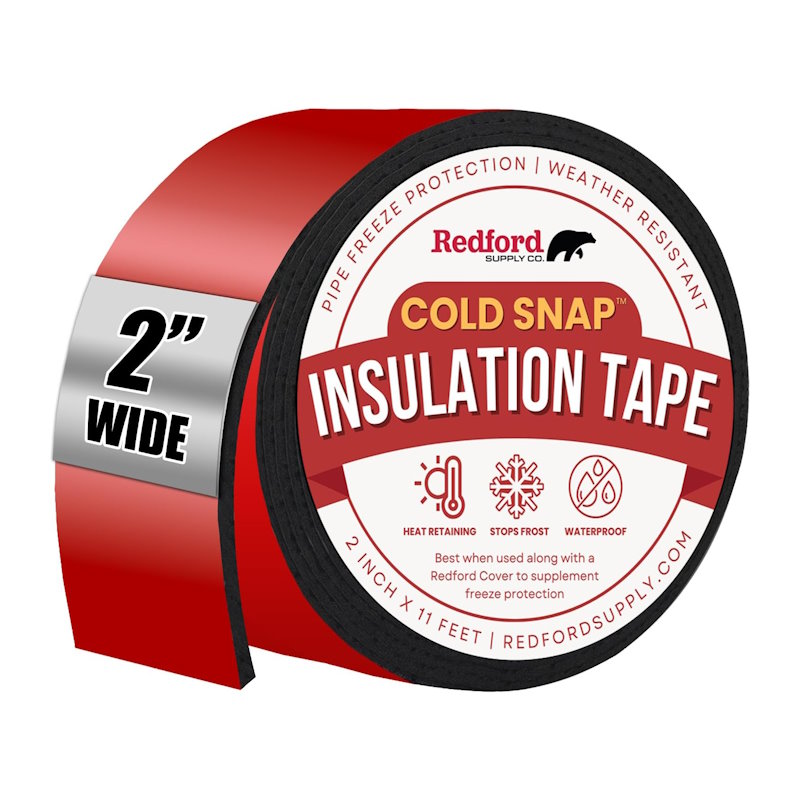How to winterize a sprinkler system – 4 key steps recommended by irrigation experts
Switching off and draining a sprinkler system will prevent pipes or sprinkler heads breaking in winter
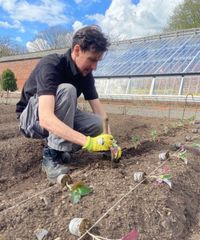
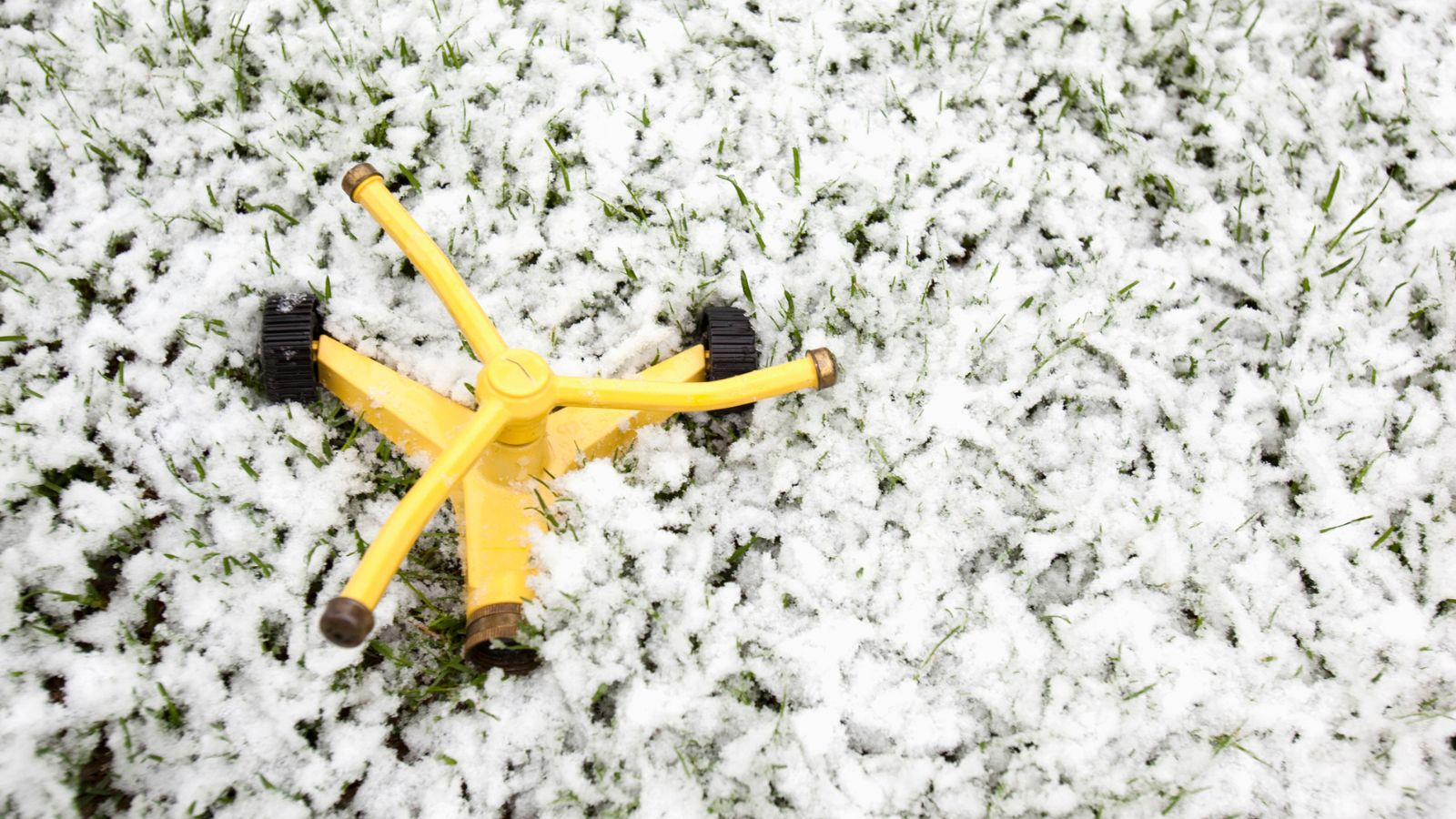
Sprinkler systems are hugely helpful in keeping lawns healthy. While irrigation becomes less important as part of winter lawn care, it's vital you plan some time to winterize your sprinkler system.
Failure to switch off and drain sprinklers will cause any water in the system to expand in freezing temperatures, potentially bursting pipes and causing leaks that may not be evident until you switch the system back on.
Knowing when to winterize a sprinkler system is as important as understanding the steps required to switch off and drain the system. Some set-ups may be simple to winterize and be a DIY project, while others may require professional help.
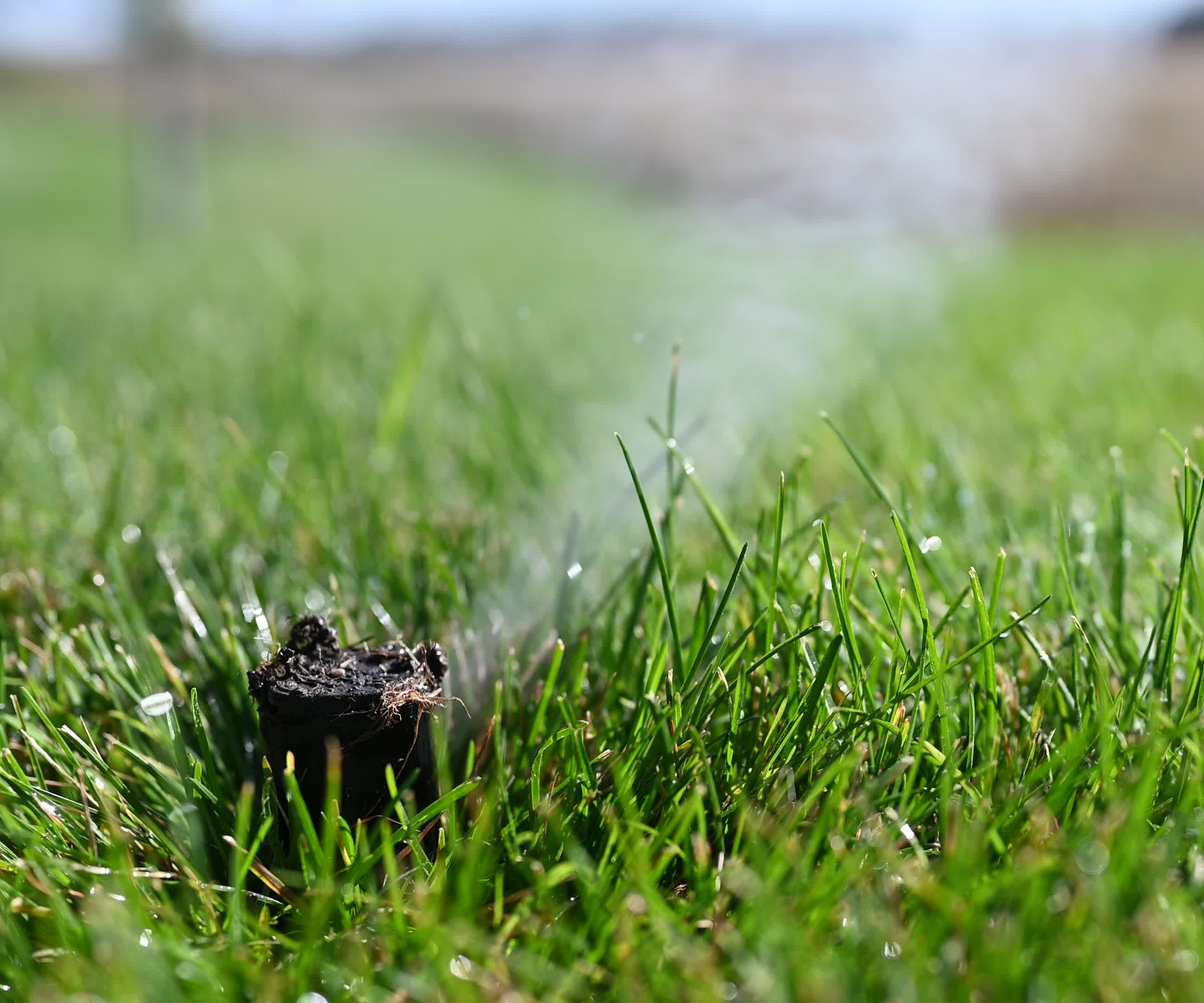
Sprinklers can be drained using compressed air
Do I need to winterize my sprinkler system?
It is always important to switch off and prepare a sprinkler system as part of any fall gardening checklist. Failure to do so can potentially result in a large repair bill. We hear from irrigation experts about the steps and methods to winterize different sprinkler systems.
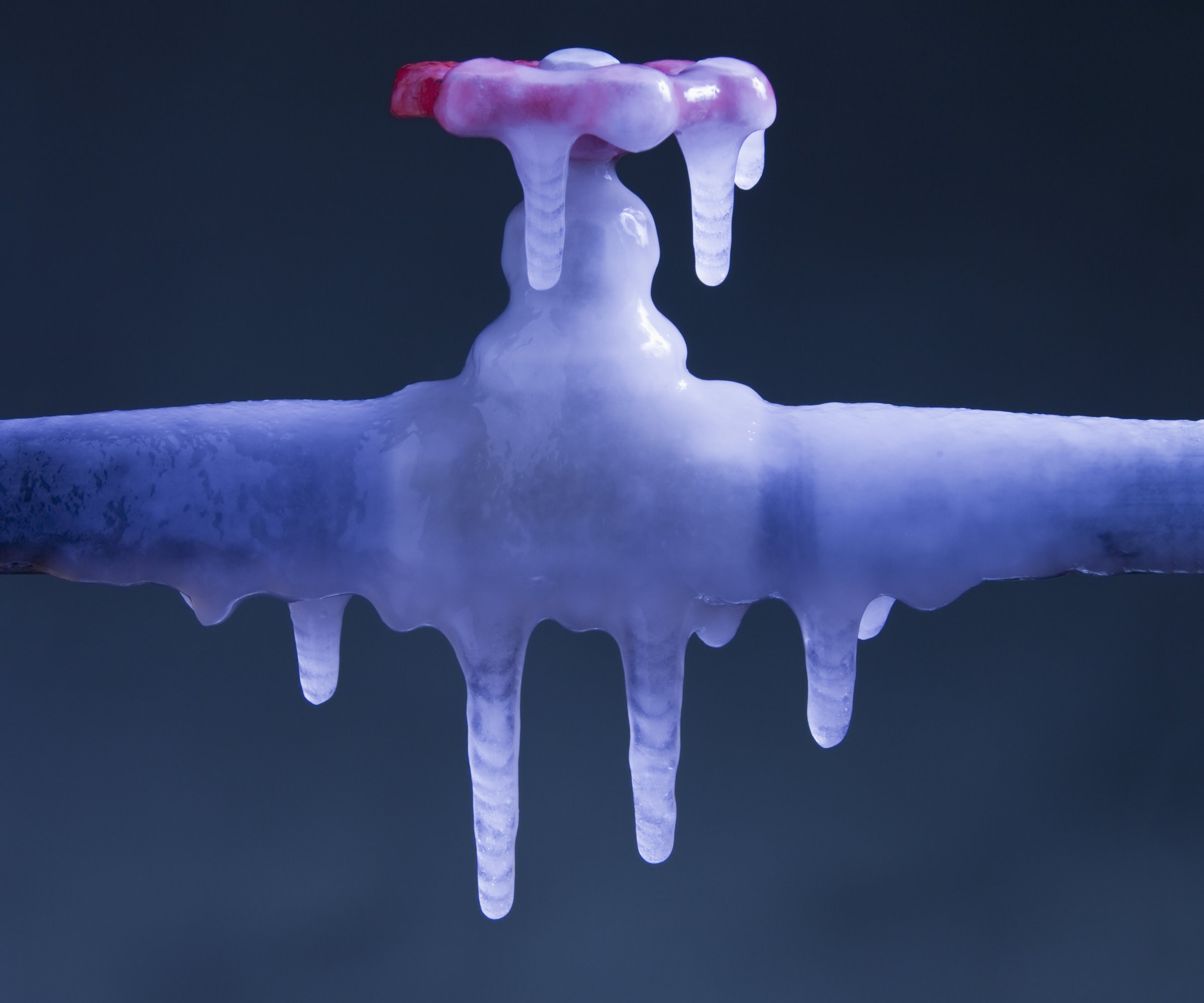
Water in irrigation pipes can freeze and expand in winter
How to winterize a sprinkler system in 4 steps
It is important to shut down a sprinkler system a few weeks before the first frosts are predicted for your area or US hardiness zone. Completing all the necessary steps before temperatures plummet means that all water can be drained from the system and any components protected. As water expands when it freezes, any moisture left in pipes and sprinkler heads can burst the components, causing expensive damage.
Once you know why and when you need to switch off a system, it is important to understand how to winterize an irrigation system. Allison Harrison, the co-owner of Goodbee Plumbing, highlights the four key steps to shutting down and protecting any sprinkler system for the winter.
- Turn off the water supply: The main water supply to the sprinkler system should be turned off
- Drain the system: There are several methods to drain water from the pipes, including the manual drain method, the auto drain method, and the compressed air blow-out method. The last one is most effective but requires professional equipment and expertise
- Insulate: Protect above-ground components, such as backflow preventers and valves, by insulating them with foam insulating tape or insulation bags
- Shut down controller: If your system has a timer or controller, switch it to the “off” or “rain mode” to save electricity and wear and tear
As Allison mentioned, there are different methods available to drain the system. It is important to refer to the manufacturer’s instructions, as different types of sprinklers will require specific methods.
Design expertise in your inbox – from inspiring decorating ideas and beautiful celebrity homes to practical gardening advice and shopping round-ups.
Josh Mitchell, plumbing expert and owner of Plumbing Lab, explains some systems will have ‘manual valves at the low points’ which can be opened to let the water drain out. Others may have automatic drain valves that will open when the pressure drops. He says that by turning off the mains water supply, the system pressure will reduce and these valves should automatically open.
When talking about the blow-out method, Josh adds: ‘This involves using compressed air to force any remaining water out of the system. It's the most effective method, especially for systems in regions with deep freeze. However, it's vital to ensure the right amount of pressure, as too much can damage your system. Typically, 50-80 psi is sufficient, depending on the type of pipes used.’
To blow out a sprinkler system, an air compressor is used to remove the excess water from the pipes and sprinkler heads. However, too much pressure can damage the pipes or even cause injury if debris flies out of the system. It is generally recommended to use professionals to avoid causing potential large-scale damage to your irrigation system.

Allison Harrison is the co-owner of Goodbee Plumbing, a plumbing company serving the greater New Orleans area.

Josh Mitchell is a plumbing technician and the owner of plumbinglab.com. Having worked with numerous homeowners on their irrigation systems, he understands the importance of adequately preparing for the cold months.
FAQs
Can I winterize a sprinkler system myself?
DIY draining and shutting off sprinkler systems is possible. If you wish to shut off the system yourself, then it is important to understand the system and feel comfortable with all the steps involved. Using the blow-out method is the most complicated, and potentially most dangerous, way to drain the stem and you must be gentle and wear safety gear.
Plumbing technician Josh Mitchell advises: ‘While DIY can be satisfying and cost-effective, a misstep can lead to costly repairs. If you're uncertain or if your system is complex, consult a professional.’
Do sprinklers break in winter?
Sprinklers can be damaged in winter frosts, as any water left inside can expand and split the components in the sprinkler head. A lot of times the damage is not evident until the system is switched on again in spring. As well as the heads, sprinkler lines can also be damaged by water freezing in them.
When planning your fall lawn care regime, it's a wise idea to put winterizing an irrigation system on that list along with the usual tasks of aerating the lawn, scarifying, and overseeding.

Drew has worked as a writer since 2008 and was also a professional gardener for many years. As a trained horticulturist, he worked in prestigious historic gardens, including Hanbury Hall and the world-famous Hidcote Manor Garden. He also spent time as a specialist kitchen gardener at Soho Farmhouse and Netherby Hall, where he grew vegetables, fruit, herbs, and cut flowers for restaurants. Drew has written for numerous print and online publications and is an allotment holder and garden blogger. He is shortlisted for the Digital Gardening Writer of the Year at the 2025 Garden Media Guild Awards.
